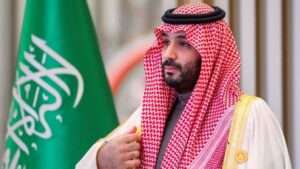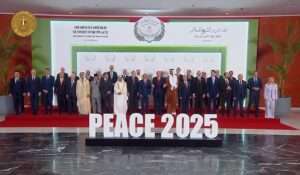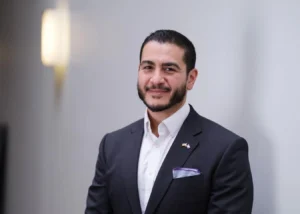By Rick Clay
Ukraine’s Parliament passed controversial amendments to the Criminal Code on Tuesday, July 22, 2025, rapidly signed into law by President Volodymyr Zelenskyy the same evening. The legislation places the National Anti-Corruption Bureau of Ukraine (NABU) and the Specialised Anti-Corruption Prosecutor’s Office (SAPO) under the direct control of the Prosecutor General— a political appointee of the President.
This shift grants the Prosecutor General the authority to select which cases NABU and SAPO investigate and reassign cases to other state agencies. Critics argue the move undermines the independence of these key anti-corruption bodies, increasing political influence over high-profile investigations at a critical time for Ukraine’s governance and security.
Fighting corruption has long been central to Ukraine’s ambitions to join the European Union and to maintaining vital Western financial support amid Russia’s ongoing invasion. The new law drew immediate disapproval from foreign governments, international civil society, and many young Ukrainians who rallied in Kyiv and across the country before its passage.
European Commission President Ursula von der Leyen expressed “strong concerns” to President Zelenskyy and demanded explanations. EU Enlargement Commissioner Marta Kos described the legislation as a “serious step back,” emphasizing that independent institutions like NABU and SAPO are “essential for Ukraine’s EU path,” with the rule of law remaining at the core of accession negotiations.
An EU spokesperson warned the amendments “risk weakening strongly the competences and powers of the anti-corruption institutions of Ukraine,” highlighting that these bodies are “cornerstones of Ukraine’s rule of law” crucial for reform and public trust.
Transparency International’s Ukrainian branch condemned the law, urging Zelenskyy to veto it. They warned the legislation would dismantle Ukraine’s anti-corruption infrastructure, rendering NABU a mere subdivision of the Prosecutor General’s office and reducing SAPO’s head to a nominal figure.
In a Tuesday evening address, Zelenskyy defended the reforms as necessary to rid the anti-corruption system of alleged Russian influence, referencing recent raids on NABU offices over espionage suspicions.
“The anti-corruption infrastructure will work, only without Russian influence — it needs to be cleared of that. And there should be more justice,” Zelenskyy stated. He emphasized the Prosecutor General’s role in ensuring the inevitability of punishment for lawbreakers, insisting this is what Ukraine truly needs.
Despite these assurances, several thousand Ukrainians staged the largest protests in over three years of war, marking a rare moment of public dissent focused on domestic governance rather than wartime issues like prisoner exchanges or missing persons.
The rapid political overhaul signals a break from the wartime consensus that internal political disputes should be set aside, opening Ukraine to potential internal division. Critics warn that Russia may exploit the political turmoil to destabilize Ukraine further, a scenario experts consider highly likely in the coming days.
In parallel, Ukraine’s defense minister announced a $120 billion defense budget request for the next year, highlighting the immense resources required to sustain the fight. The government also set a goal for Ukraine’s defense industry to locally produce 50% of the weapons needed by the army next year, up from about 40% currently.
Adding to the security concerns, General Kyrylo Budanov, head of Ukraine’s military intelligence, revealed that Russia plans to spend $1.1 trillion over the next decade to rearm its forces as part of a broader strategy to reshape the global order and prepare for possible global conflict. Despite Russia’s ambitions in Africa and Europe, the country’s economy faces serious challenges in sustaining such extensive military reform.
On the diplomatic front, Russia’s presidential spokesman appeared evasive when asked about a possible meeting between President Putin and President Zelenskyy, reiterating that negotiations remain ongoing but offering no concrete hope of a direct encounter. Putin’s consistent stance remains that the invasion’s goal is regime change in Kyiv, a fundamental obstacle to dialogue.
The political shake-up in Ukraine’s anti-corruption apparatus comes at a delicate moment — amid war, reform pressures, and international scrutiny. The coming weeks will reveal whether Zelenskyy’s government can navigate these challenges without further destabilizing the nation or undermining its reformist trajectory.















